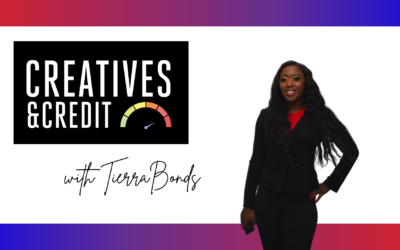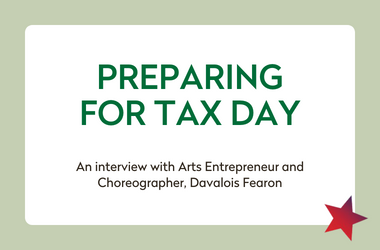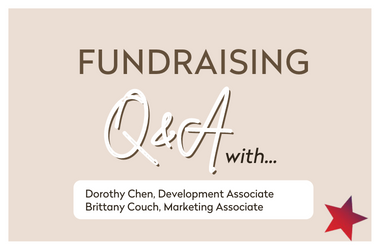Empowering Dance Artists through Fair Hiring Practices
Dance Artists’ National Collective (DANC) is a leading voice in supporting dance artists
Empowering artists ties directly to our commitment to educate dance artists. Educating artists on best business practices will lead to sustainability, longevity, and overall health of both individuals and their artistic entities. The Dance Artists’ National Collective (DANC), a growing group of freelance dance artists, has over the past year, emerged as a leading voice in our community organizing towards safe, equitable, and sustainable working conditions. In light of COVID-19’s impact on the field and the opportunity to revisit and rethink ‘norms’, we reached out to our friends at DANC to learn more about their work.
Tell us about DANC, what was the impetus to collectivize for the dance community?
DANC was founded on the belief that dancers’ work is valuable and should be dignified. We initially collectivized around our shared concern that working conditions have been stagnating, if not worsening, for freelance dancers–workers who already face tremendous precarity as a matter of course, regardless of apparent “success” in their chosen line of work. Much of this precarity can be traced directly to pervasive narratives of scarcity and competition, as well as to the individual dancer’s relative lack of power when it comes to wage amount, rehearsal scheduling, and workplace conditions. Notably, there are no regulations for pay or workplace conduct (let alone reporting procedures for freelance dancers who experience workplace harassment or discrimination). Each of these factors can have a significant impact on dancer wellness and career longevity. Moreover, a dancer’s ability to overcome these obstacles often has to do with privilege–a fact that contributes to the glaring lack of diversity in the dance field. Dance Artists’ National Collective operates on the principle that laborers organizing together in solidarity can affect real change in dancers’ lives. At our open DANC meetings, we hold space for dancers to discuss their collective needs as workers and strategize about how to get those needs met.
How has the coronavirus pandemic influenced this argument, in the dance community?
The Coronavirus crisis has worsened conditions across the board and put a spotlight on the issues that exist within both the dance industry and the performing arts at large in America. With the closure of theaters and other arts venues, the unemployment rate for live performing artists has approached 100%. Nobody can say when we’ll be able to resume dancing together, and many dancers who also work in the service industry have been left with no wages at all.
Many companies with dancers on full-time contracts (especially union-bargained contracts) have agreed to honor those contracts and continue to pay their dancers, often with the aid of PPP loans via the CARES Act. Many other dancers who were on W2 contracts and were laid off via force majeure provisions were able to access Unemployment Insurance benefits without much difficulty. For dancers who worked mostly on 1099s, however, neither of these options were initially available. While the CARES Act broadened eligibility for UI benefits to include gig economy workers, state UI offices have been overwhelmed by the influx of newly qualified individuals whose claims require additional vetting, creating further delays and barriers to payment.
Importantly, the current rules allow for the state UI office to consider EITHER an applicant’s 1099 income OR their W2 income, but not both together, when judging eligibility. If the applicant did not earn enough on either slate individually to qualify for UI benefits, they are ineligible.
Tellingly, many dancers who qualify for UI and PUA are making more money from unemployment checks than they made dancing. This fact alone speaks quite forcefully to the sorry state of dancers’ wages in the current economy.
What are your next steps, to continue helping dance artists?
We believe that when dancers organize in solidarity to demand better pay and working conditions, we can create the change we want to see. To that end, DANC is building a Negotiating Toolkit and Floating Letter of Agreement for freelance dancers, both of which will facilitate a clear conversation and working agreement between a cast of dancers and their employer. The LoA will be in template form with editable sections for wages, benefits, working conditions, and workplace equity. Rather than setting any one-size-fits-all standards, the Floating LoA will be flexible enough to create a tailored agreement that suits the particular job and comprehensive enough to support clear and specific communication and expectations. Clearly written agreements for employment benefit both the dancer and their employer, and it is our hope that the widespread use of these tools will shift the norms around employment practices (specifically the common practice of a verbal or informal agreement) and break a lingering stigma in the dance industry around talking about both wages and working conditions.
What are some important factors for dancers to consider when negotiating being paid on a 1099? Can you give some reasons DANC is a proponent for dancers to be paid on a W2 basis?
According to federal guidelines, dancers’ work is classified as employee labor. This is because dancers 1) are required to show up to work at specific times; 2) are not replaceable (ie, cannot send a substitute to rehearsal for them); and 3) are essentially told what to do by employers. As such, DANC advocates for all dance performers to be paid as W2 employees. However, we also recognize that at present, many (if not most) freelance dancers are paid as independent contractors via a 1099 form. Shifting the industry norm from 1099 to W2 employment will take time and significant organizing. In the meantime, we advise dancers employed as independent contractors to consider what they are losing financially. 1099 work does not come with deductions for Unemployment Insurance, Workers’ Comp Insurance, or income taxes (state or federal). This means that in the event of being injured on the job, the financial responsibilities of medical care and lost wages (due to injury) fall to the individual dancer. It means that the dancer has little recourse to state aid if they find themselves in an extended period without paid work. It means that come tax time, they will need to have money saved in order to pay taxes on all their 1099 income. All of these are real costs that the employer passes on to the dancer when they hire the dancer as an independent contractor. We encourage dancers to consider those costs when negotiating and/or deciding whether to accept an employer’s offer.
—
One of the reasons, nextSteps wanted to feature DANC was because Pentacle’s Fiscal Services support a range of performing artists at varying stages of their careers. Many artistic entities using our services hire dancers and in turn, many of those dancers run artistic entities. Pentacle often advises that artists, who have the means, should pay dancers as W2 employees as part of best business practices. This is in line with DANC’s mission and the Department of Labor’s definition of an employee versus independent contractor. Our Fiscal Services include full fiscal administration for incorporated companies, fiscal sponsorship for individual artists, and bookkeeping services that meet individual companies’ and artists’ needs. With programs that fit every size and business type, our goal is to empower artists with the tools they need for success.
Pentacle remains dedicated to continuing to provide a high level of support to artists during these extraordinary circumstances. Alongside many other key and respected organizations in the field, we have begun accumulating and curating resources for artists and organizations experiencing income loss and other troubles as a result of the COVID-19 crisis.
NEXTSTEPS | 06.26.20
Latest Blog Posts
Creatives & Credit
Creatives & Credit: A Credit Score WorkshopRecorded on May 4th 2022 Pentacle Presents FREE Creatives & Credit Workshop with Tierra Bonds For artists and creatives looking to build good money habits, this fiscal session teaches you how to reach your credit...
Preparing for Tax Day
Preparing for Tax DayAn interview with Davalois Fearon In preparation for Tax Day, we talked with Davalois Fearon about her experience working with Pentacle, and how it has helped her with her taxes and gain overall financial health, especially through Fiscal...
Planning A Fundraising Event
Planning A Fundraising EventEvent fundraising can be a great way to raise funds There are a number of ways to fundraise money for an organization or cause. One of the most collaborative ways to fundraise is by hosting an event. There are many steps to consider when...



